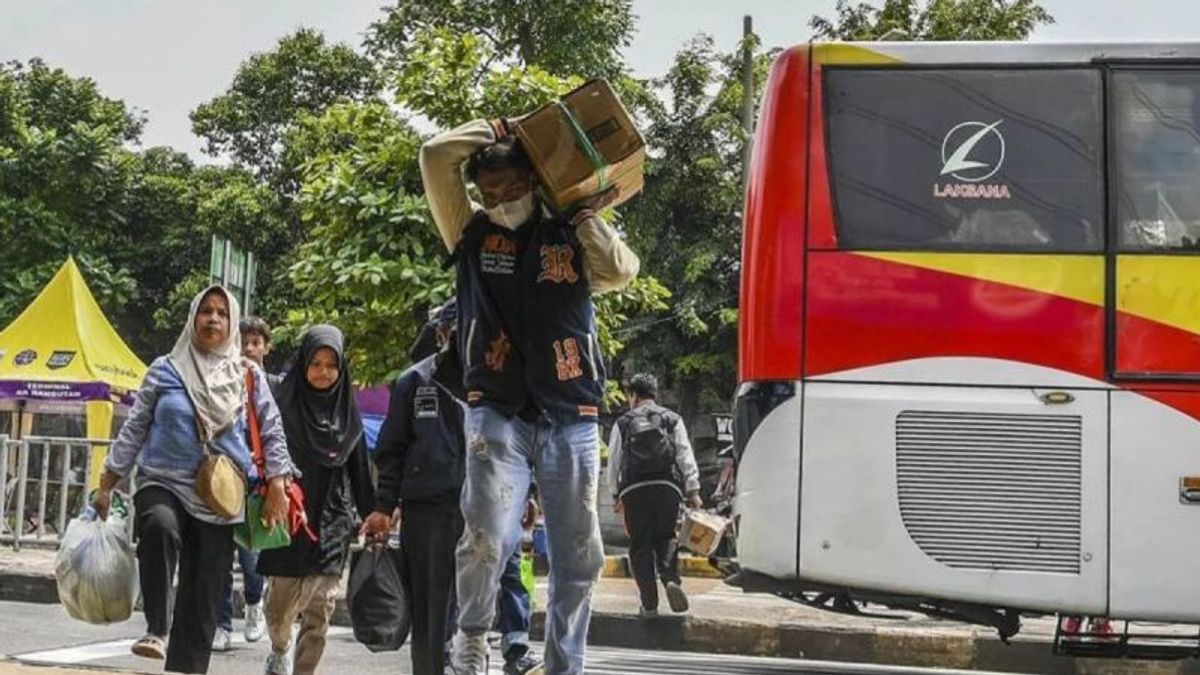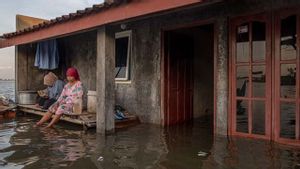JAKARTA - No longer an attraction for some people outside the region to compete over the fate of living and making a living.
The public began to rethink the high wages promised compared to their hometowns, compared to the cost of living that had to be supported was quite heavy.
Information about the cost of living is now easily accessible through various information media, even relatives who first lived in DKI Jakarta.
City planning observer from Trisakti University Yayat Supriatna said the high cost of living was a factor in the decline in the number of newcomers or residents who migrated to Jakarta, after Lebaran this year.
"Many travelers now don't want to bring their families back to Jakarta because they themselves have been depressed by the cost of living, getting more and more expensive," Yayat said as quoted by ANTARA in Jakarta, Thursday, April 18.
Yayat explained, the cost of eating in Jakarta alone can cost Rp. 3 million per month. In fact, this is not sufficient for all other needs.
Moreover, the salaries of workers in Jakarta, which average around Rp. 4 million, will choose to live in a boarding house or a cheap rented house.
"Moreover, those who are still bachelors from the village in one boarding house or rented can be five people to save costs," he said.
In addition, he also highlighted the fact that many residents have Jakarta ID cards, but have not lived in the capital since the deactivation of the population identification number (NIK) was carried out which is still being carried out today.
According to him, this data also supports the reasons for high living expenses to be a factor for residents to prefer not to stay in Jakarta and choose to live in the surrounding city.
However, there are also other factors that support residents who can still work in Jakarta even though they are no longer living in Jakarta, namely the ease of transportation.
"They can still use motorbikes, KRL to buses instead of living in Jakarta," he said.
Thus, he assessed that the cost of living does affect the ups and downs of the number of migrants entering Jakarta.
However, this does not reduce the density of residents' activities to continue looking for jobs in the capital city.
Previously, the DKI Jakarta Population and Civil Registration Agency (Dukcapil) explained the trend of the number of migrants after Lebaran over the last four years, namely as many as 24,043 migrants in 2020, then down to 20,046 migrants in 2021.
SEE ALSO:
Then, in 2022, the number of migrants had increased to 27,478 people and fell again to 25,918 migrants in 2023.
Head of the DKI Jakarta Provincial Dukcapil Agency, Budi Awaludin, estimates that the number of newcomers to Jakarta will decrease when compared to 2023, which is around 10,000-15.000 people.
The English, Chinese, Japanese, Arabic, and French versions are automatically generated by the AI. So there may still be inaccuracies in translating, please always see Indonesian as our main language. (system supported by DigitalSiber.id)

















